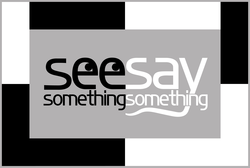April 6, 2023
Newsletter MAFR - Law, Compliance, Regulation

🌐 follow Marie-Anne Frison-Roche on LinkedIn
🌐 subscribe to the Newsletter MAFR Regulation, Compliance, Law
____
► Full Reference: M.-A. Frison-Roche, "La "rationalité délibérative" et l'usage adéquat de l'impératif de vigilance" (""Deliberative rationality" and the proper use of the vigilance imperative"), Newsletter MAFR - Law, Compliance, Regulation, 6 April 2023.
____
📧Read by freely subscribing other news of the Newsletter MAFR - Law, Compliance, Regulation
____
🔴The deliberative public space, a model method for the implementation of the duty of vigilance
In this new article of April 6, 2023 of the Newsletter MAFR - Law, Compliance, Regulation, the political philosophy construction that Habermas exposes about social networks and the method that the implementation of the duty of vigilance requires are correlated. Indeed, Habermas continues to advocate a space for discussion, contradiction, deliberation, opinion that can act with rationality. Communication and mediation are essential to ensure that the future, which is the object of vigilance, will not be a catastrophe: this monumental goal of compliance, of which Vigilance is a part, implies it.
____
📧read the article ⤵️
April 4, 2023
Thesaurus : Doctrine
► Référence complète : A. Danis-Fatôme & N. Hoffschir, "La loi sur le devoir de vigilance rendue ineffective par le juge", Revue des sociétés, 2023, p.793.
____
🦉Cet article est accessible en texte intégral pour les personnes inscrites aux enseignements de la Professeure Marie-Anne Frison-Roche
________
Feb. 2, 2023
Thesaurus : Doctrine

► Full Reference: F. Ancel, "Le principe processuel de compliance, un nouveau principe directeur du procès ?" (The procedural principle of compliance, a new trial leading principle?), in M.-A. Frison-Roche (ed.), La juridictionnalisation de la Compliance, coll. "Régulations & Compliance", Journal of Regulation & Compliance (JoRC) and Dalloz, 2023, p. 225-230.
____
📕read a general presentation of the book, La juridictionnalisation de la compliance, in which this article is published
____
► Summary of the article (done by the Journal of Regulation & Compliance): Through this article, the author formulates a proposal: elevating the principle of compliance to the rank of leading principle of the trial. To support this, the author firstly emphasizes the convergence of the aims of compliance and the purpose of the trial. Indeed, emphasizing that Compliance Law does not oust either the State or the judge, as soon as compliance means that the person must keep their commitments and that the trial is also based on this principle that the parties must conform to the principles and to their own "speech", compliance thus becomes a trial leading principle.
In a second part of the article, the author illustrates his point in a very concrete way. First, the protocols of procedure which are drawn up by the courts and the bars are commitments which should justify a form of constraint which, if it should not have the same form and nature as that of the law, must all the same even have consequences when a party fails to do so. Secondly, relying on French case law which sanctions a party which had accepted the principle of an arbitration and then systematically hinders its implementation, the author suggests that under the principle of compliance can be grouped the notions for the instant scattered of loyalty, consistency (estoppel) and efficiency.
Thus, this "open practice" echoing the "open way" of a procedural principle of compliance brings out this one.
________
Feb. 2, 2023
Publications

🌐 follow Marie-Anne Frison-Roche sur LinkedIn
🌐subscribe to the Newsletter MAFR Regulation, Compliance, Law
____
► Full Reference: M.-A. Frison-Roche, "Le juge, l'obligation de compliance et l'entreprise. Le système probatoire de la Compliance" ("The judge, the compliance obligation, and the company. The Compliance probationary system"), in M.-A. Frison-Roche (ed.), La juridictionnalisation de la Compliance, coll. "Régulations & Compliance", Journal of Regulation & Compliance (JoRC) and Dalloz, 2023, p 409-442.
____
📝read the article (in French)
____
🚧read the bilingual Working Paper which is the basis of this article, with additional developments, technical references and hyperlinks
____
📕read a general presentation of the book, La juridictionnalisation de la Compliance, in which this article is published
____
► Summary of the article (done by the Journal of Regulation & Compliance): the article aims to identify the link that must be established between the company in its relationship with the compliance obligations it assumes and the judges to whom it is accountable in this respect: this link is established by evidence. The evidentiary system of proof has yet to be constructed, and it is the purpose of this long study to lay the groundwork.
To this end, the article begins with a description of what is designated here as the "probatory square" in a "probatory system" that is superimposed on the system of rules of substantive legal system. This is all the more important because Compliance seems to be in frontal collision in its very principles with the general principles of the evidentiary system, in particular because it seems that the company would have to prove the existence of the Law or that it would have to bear in a definitive way the burden of proving the absence of violation, which seems to be contrary not only to the presumption of innocence but also to the principle of the freedom of action and of undertaking. In order to re-articulate Compliance Law, the obligations of compliance which legitimately weigh on the company, it is necessary to return to the probatory system specific to Compliance, so that it remains within the Rule of Law. This presupposes the adoption of a substantial definition of Compliance, which is not only compliance with the rules, which is only a minimal dimension, but implies that Compliance Law should be defined by the Monumental Goals on which the public authorities and the companies are in substantial alliance.
The evidentiary system of principle makes play between its four summits that are the burden of proof, the objects of proof this evidentiary square of principle, between the burden of proof, the means of proof and their admissibility. Compliance Law does not fall outside this evidential square, thus marking its full membership of the Rule of Law
In order to lay the foundations of the evidential system specific to Compliance Law, the first part of the article identifies the objects of proof which are specific to it, by distinguishing between the structural devices, on the one hand, and the expected behaviours, on the other. The first involves proving that the structures required to achieve the Monumental Goals of Compliance have actually been put in place. The object of proof is then the effectiveness of this implementation, which presents the effectiveness of the system. As far as behavioral obligations are concerned, the object of proof is the efforts made by the company to obtain them, the principle of proportionality governing the establishment of this proof, while the systemic efficiency of the whole reinforces the evidential system. However, the wisdom of evidence lies in the fact that, even though the principle remains that of freedom of evidence, the company must establish the effectiveness, efficiency, and effectiveness of the whole, independently of the burden of proof.
The second part of the article concerns those who bear the burden of proof in Compliance Law. The latter places the burden of proof on the company in principle, in view of its legal obligations. This burden comes from the legal origin of the obligations, which blocks the "round of the burden of proof". But in the interference of the different vertices of the evidentiary square, the question becomes more delicate when it comes to determining the contours of the compliance obligations that the company must perform. Moreover, the burden of proof may itself be the subject of proof, just as the company's performance of its legal obligations may also be the subject of contracts, which brings us back to the evidentiary system ordinarily applicable to contractual obligations. The situation is different when it comes to a "compliance contract" or when it comes to one or more compliance stipulations, concepts that are still not very well developed in Contract Law.
Furthermore, as all branches of Law belong to a legal system governed by the Rule of Law, other branches of law interfere and modify the methods and solutions of proof. This is the case when the fact, which is the object of proof, can give rise to a sanction, the Law of repression imposing its own solutions in the matter of the burden of proof.
In the third part of the article, the relevant means of proof in Compliance Law are examined, used in that Compliance Law is above all a branch of Law whose object is on the one hand information and on the other hand the Future. Open questions remain, such as whether companies could be forced by the Judge to build technologies to invent new means of proof. To show that they are indeed achieving the Monumental Goals they are charged with.
In the fourth part, the vital character of the pre-constitution of evidence is shown, which is the reflection of the Ex-Ante nature of Compliance Law: evidence must be pre-constituted to avoid the very prospect of having to use it, by finding all the means to establish the effectiveness, efficiency and even the effectiveness of the various Compliance Tools.
If companies do all this methodically, the Compliance evidence system will be established, in harmony with the general evidence system, Compliance Law and the Rule of Law.
________
Updated: Feb. 2, 2023 (Initial publication: June 23, 2021)
Thesaurus : Doctrine

► Full Reference: J. Heymann, "La nature juridique de la "Cour suprême" de Facebook" ("The legal nature of Facebook's "Supreme court""), in M.-A. Frison-Roche (ed.), La juridictionnalisation de la Compliance, coll. "Régulations & Compliance", Journal of Regulation & Compliance (JoRC) and Dalloz, 2023, p. 151-167.
____
📕read a general presentation of the book, La juridictionnalisation de la Compliance, in which this article is published
____
► The summary below describes an article following the colloquium L'entreprise instituée Juge et Procureur d'elle-même par le Droit de la Compliance , co-organized by the Journal of Regulation & Compliance (JoRC) and the Faculté de Droit Lyon 3. This manifestation was designed under the scientific direction of Marie-Anne Frison-Roche and Jean-Christophe Roda and took place in Lyon on June 23, 2021.
In the book, the article will be published in Title I, devoted to: The Entreprise instituted Judge and Prosecutor of itself by Compliance Law.
____
► Summary of the article (done by the author): Taking place in the general theme aiming at making “words and things coincide”, the article offers some thoughts on the “conditions of the discourse” – in the sense in which Foucault understood it in his Archéologie des sciences humaines – relating to the phenomenon of “jurisdictionalization” of Compliance.
The thoughts are more specifically focusing on the nature of the so-called “Supreme Court” that Facebook instituted to hear appeals of decisions relating to content on the digital social networks that are Facebook and Instagram. Is this really a “Supreme Court”, designed in order to “judge” the Facebook Group?
A careful examination of the Oversight Board – i.e. the so-called “Supreme Court” created by Facebook – reveals that the latter, in addition to its advisory mission (which consists of issuing policy advisory opinions on Facebook’s content policies), exercises some form of adjudicative function. This is essentially conceived in terms of compliance assessment, of the content published on the social networks Facebook or Instagram with the standards issued by these corporations on the one hand, of content enforcement decisions taken by Facebook with the Law on the other hand. The legal framework of reference is yet rather vague, although its substantial content seems to be per se evolutive, based on the geographical realm where the case to be reviewed is located. An adjudicative function can therefore be characterized, even if the Oversight Board can only claim for a limited one.
The author can ultimately identify the Oversight Board as a preventive dispute settlement body, in the sense that it seems to aim at avoiding any referral to state courts and ruling before any court’s judgement can be delivered. Some questions are thus to be raised, relating with both legitimacy and authority of such a Board. But whatever the answers will be, the fact remains that the creation of the Oversight Board by a private law company already reveals all the liveliness of contemporary legal pluralism.
________
Updated: Feb. 2, 2023 (Initial publication: March 31, 2021)
Thesaurus : Doctrine

► Full Reference: F.-X. Train, "Arbitrage et procédures parallèles exercées au titre de la compliance" ("Arbitration and parallel proceedings exercised in Compliance Procedure"), in M.-A. Frison-Roche (ed.), La juridictionnalisation de la Compliance, coll. "Régulations & Compliance", Journal of Regulation & Compliance (JoRC) and Dalloz, 2023, p. 355-368.
____
📕read a general presentation of the book, La juridictionnalisation de la Compliance, in which this article is published
____
► The summary below describes the article that follows an intervention in the scientific manifestation Compliance et Arbitrage, co-organised by the Journal of Regulation & Compliance (JoRC) and the University Panthéon-Assas (Paris II). This conference was designed by Marie-Anne Frison-Roche and Jean-Baptiste Racine, scientific co-directors, and took place in Paris II University on March 31, 2021.
In the book, the article will be published in the Chapter III, devoted to: Compliance et Arbitrage international.
____
► Summary of the article (done by the Journal of Regulation & Compliance): Firstly, the article insists on the principle of the autonomy of the international arbitration procedure, in relation to which parallel procedures remain watertight, whether they are criminal or done under Compliance Law. In the arbitral proceedings taking place independently, the arbitrators before whom the facts also referred to in these parallel proceedings, in particular the facts of corruption, are alleged before them as facts through their unlawful nature: it is at this title that they can and must apprehend them, using the standard of proof which is the bundle of clues.
Secondly, the article highlights the limits of the autonomy of international arbitration. These may be de facto limits because in the search for evidence by arbitrators, red flags are often insufficiently consistent evidence to establish a sentence, especially since this sentence may be subject to control by the judge of its conformity to international public order, the annulment by the judge being able to be based on external elements, even after the arbitration procedure. It may then be wise for the arbitrators, who are not forced to do so, to suspend their proceedings to wait the results of the parallel proceedings initiated under Compliance Law, so that the procedures and their results could be harmonious.
________
Feb. 2, 2023
Thesaurus : Doctrine

► Full Reference: A. Bavitot, "Le façonnage de l'entreprise par les accords de justice pénale négociée" ("Shaping the company through negotiated Criminal Justice Agreements"), in M.-A. Frison-Roche (ed.), La juridictionnalisation de la Compliance, coll. "Régulations & Compliance", Journal of Regulation & Compliance (JoRC) and Dalloz, 2023, p. 187-198.
____
📕read a general presentation of the book, La juridictionnalisation de la Compliance, in which this article is published
____
► Summary of the article (done by the author): Negotiated justice is "the situation in which the criminal conflict is the object of a trade in the etymological sense of the term negotio, i.e. a debate between the parties to reach an agreement".
Thus, the French legislator has succumbed to globalized mimicry by creating the Convention judiciaire d'intérêt public (Public Interest Judicial Agreement), first in matters of probity and then in environmental matters. What is the nature of this deal of justice? Validated by a judge's order, it does not entail any declaration of guilt, has neither the nature nor the effects of a judgment of conviction and is not registered in the judicial record. Possible at the investigation stage as well as at the pre-trial stage, the Public Interest Judicial Agreement is original in that it makes it possible to avoid either the prosecutor's proceedings or the judge's wrath.
A detailed study of the agreements signed shows that in order to negotiate in the best possible way, the company can and must shape itself. The company will shape the facts of its agreement, shape its charge and, finally, shape its sentence. The article offers a concrete analysis of these three dimensions of corporate shaping to better approach understanding the legal nature of negotiated criminal justice agreements.
________
Dec. 8, 2022
Thesaurus : Doctrine
► Full reference: N. Cayrol, "L'amicus curiae, mesure d'instruction ordinaire", Chronique de Procédure civile, D. 2022, p.2181-2183.
____
► Summary of the article (done by the author, in French) : Les mesures d'instruction sont généralement présentées comme des mesures tendant uniquement à l'administration de la « preuve de faits dont dépend la solution du litige ».
À cette conception stricte, on préfère une conception large, englobant toutes les mesures tendant à instruire le tribunal.
Cela présente l'intérêt de donner un cadre procédural connu à la désignation d'un amicus curiae par les juges, aidant ainsi à lever les ambiguïtés qui entourent encore ce procédé.
________
Oct. 23, 2022
Thesaurus : Doctrine

► Full Reference: F. Ancel, "Compliance Law, a new guiding principle for the Trial?", in M.-A. Frison-Roche (ed.), Compliance Jurisdictionalisation, Journal of Regulation & Compliance (JoRC) and Bruylant, coll. "Compliance & Regulation", to be published.
____
📘read a general presentation of the book, Compliance Jurisdictionalisation, in which this article is published
____
► Summary of the article (done by the Journal of Regulation & Compliance): Through this article, the author formulates a proposal: elevating the principle of compliance to the rank of leading principle of the trial. To support this, the author firstly emphasizes the convergence of the aims of compliance and the purpose of the trial. Indeed, emphasizing that Compliance Law does not oust either the State or the judge, as soon as compliance means that the person must keep their commitments and that the trial is also based on this principle that the parties must conform to the principles and to their own "speech", compliance thus becomes a trial leading principle.
In a second part of the article, the author illustrates his point in a very concrete way. First, the protocols of procedure which are drawn up by the courts and the bars are commitments which should justify a form of constraint which, if it should not have the same form and nature as that of the law, must all the same even have consequences when a party fails to do so. Secondly, relying on French case law which sanctions a party which had accepted the principle of an arbitration and then systematically hinders its implementation, the author suggests that under the principle of compliance can be grouped the notions for the instant scattered of loyalty, consistency (estoppel) and efficiency.
Thus, this "open practice" echoing the "open way" of a procedural principle of compliance brings out this one.
____
🦉This article is available in full text to those registered for Professor Marie-Anne Frison-Roche's courses
________
Oct. 20, 2022
Thesaurus : Doctrine

► Full Reference: F.-X. Train, "Arbitration and parallel proceedings exercised in Compliance Procedure", in M.-A. Frison-Roche, M.-A. (ed.), Compliance Jurisdictionalisation, series "Compliance & Regulation", Journal of Regulation & Compliance (JoRC) and Bruylant, to be published.
___
► the summary below describes the article that follows an intervention in the scientific manifestation Compliance et Arbitrage, co-organised by the Journal of Regulation & Compliance (JoRC) and the University Panthéon-Assas (Paris II). This conference was designed by Marie-Anne Frison-Roche and Jean-Baptiste Racine, scientific co-directors, and took place in Paris II University on March 31, 2021.
In the book, the article will be published in the Chapter III, devoted to: Compliance et Arbitrage international.
___
► Article Summary: Firstly, the article insists on the principle of the autonomy of the international arbitration procedure, in relation to which parallel procedures remain watertight, whether they are criminal or done under Compliance Law. In the arbitral proceedings taking place independently, the arbitrators before whom the facts also referred to in these parallel proceedings, in particular the facts of corruption, are alleged before them as facts through their unlawful nature: it is at this title that they can and must apprehend them, using the standard of proof which is the bundle of clues.
Secondly, the article highlights the limits of the autonomy of international arbitration. These may be de facto limits because in the search for evidence by arbitrators, red flags are often insufficiently consistent evidence to establish a sentence, especially since this sentence may be subject to control by the judge of its conformity to international public order, the annulment by the judge being able to be based on external elements, even after the arbitration procedure. It may then be wise for the arbitrators, who are not forced to do so, to suspend their proceedings to wait the results of the parallel proceedings initiated under Compliance Law, so that the procedures and their results could be harmonious.
____
__________
Sept. 1, 2022
Thesaurus : Doctrine

► Full Reference: F. Marty, "L'apport des programmes de conformité à la compétitivité internationale : une perspective concurrentielle" ("The contribution of compliance programmes to international competitiveness: a competitive perspective"), in M.-A. Frison-Roche (ed.), Les Buts Monumentaux de la Compliance, coll. "Régulations & Compliance", Journal of Regulation & Compliance (JoRC) and Dalloz, 2022, p. 381-400.
____
📕read a general presentation of the book, Les Buts Monumentaux de la Compliance, in which this article is published
____
► Summary of the article (done by the Journal of Regulation & Compliance): The author analyzes economically the question of whether the compliance programs set up to respect competition rules are for the sole purpose of avoiding sanctions or also contribute to the goal of increasing the international economic performance of companies. which submit to them.
The author explains that companies integrate by duplication external standards to minimize the risk of sanctions, developing a "culture of compliance", which produces their competitiveness increase and the effectiveness of the legal and economic system. In addition, it reduces the cost of investment, which increases the attractiveness of the company.
In this, this presentation based on the postulate of the rationality of companies and investors, compliance programs can fall under self-regulation. The duplication of the law that they operate takes place largely according to "procedural" type methods.
________
July 12, 2022
Thesaurus : 02. Cour de cassation
Référence complète : Crim., 12 juillet 2022, pourvoi n° 21-83.820 (publié au bulletin).
____
_____
June 19, 2022
Law by Illustrations

► Référence complète : Frison-Roche, M.-A., Phil Spector : Avant tout une fiction ..., qui raconte par les noms et dates précises la préparation du procès de Phil Spector, 2022
____
Qui connait l'histoire et l'industrie de la musique connait Phil Spector, celui qui dans les années 60 fut le plus grand producteur de disques, innova, lança et gagna des fortunes. Puis, il disparut parce que dans un système qui se nourrit de modes l'on disparait aussi ; il resta avec ses souvenirs et son argent. C'est plutôt sous l'angle d'un procès retentissant que les médias lui redonnèrent la couverture, puisqu'il fut poursuivi pour le meurtre d'une actrice. Proclamant d'une façon spectaculaire son innocence, il fût reconnu coupable par le jury et finit sa vie en prison. Lorsqu'il mourut en 2021 en prison à plus de 80 ans, ruiné et seul, la presse titra ainsi : "savez-vous que Phil Spector a été interprété au cinéma par Al Pacino ?".
Car dans l'autre monde qu'est non plus le monde des amateurs de musique mais le monde des amateurs de cinéma, de Phil Spector, l'on n'avait pas entendu parler. Ainsi du film qui sortit en 2013, qui retrace semble-t-il pas à pas les quelques jours précédant sa comparution devant le tribunal, ceux qui admirent celui qui est qualifié de "légende" n'ont pas entendu parlé. Et sans doute les cinéphiles ne connaissent pas cette personne.
Il faut dire que le film débute par cet avertissement : "ce film est une pure fiction qui n'a aucun rapport avec des faits qui se seraient déroulés". Et pourtant le titre même du film est : Phil Spector , c'est-à-dire un titre réduit à l'identification de la personne, pour que nul ne s'y trompe. Les noms sont exacts, les dates aussi, les faits allégués sont reproduits, les lieux également. Les perruques qu'il portait, notamment celle qu'il choisit, ainsi que l'habit, au bouton près, de mettre pour le jour où le procès s'ouvrit.


Pourquoi avoir fait cela ?
Sans doute pour ne pas avoir d'ennui, dans une affaire où la personne concernée fut condamnée pour un meurtre alors qu'il affirmait avoir été témoin d'un suicide. En effet, des personnes avaient par exemple menacé Helen Mirren de s'opposer à l'attribution de toute récompense pour jouer dans un film pour présenter d'une "façon sympathique" un personnage diabolique... L'avantage d'une fiction est qu'on rend moins de compte des personnages qui ne vivraient que sur l'écran....
Pour pouvoir aussi ajouter autant de scènes que l'on veut où le personnage, désormais "de fiction" que serait ce Phil Spector qui n'aurait donc aucun compte à rendre à Phil Spector, peut apparaître dans toute sa démesure et sa rage, notamment contre la justice et la société.
Cela permet au spectateur de voir tout le travail de l'avocate, Linda Kenney Baden, interprétée par Helen Mirren :


L'on peut par exemple y voir les cross-examinations simulés par lesquelles l'avocat prépare le client ou bien, à l'intérieur même du cabinet, la façon dont à tour de rôle les avocats endossent la thèse de l'adversaire.
Dans toutes ces scènes qui furent, dans la "réalité", si théâtrales dans ce procès hors-normes autour d'une personnalité hors-norme, prévenir dans ce film présenté par tous comme une biographie que tout cela ne serait que "fiction" nous montre en tant cas les effets de miroir qu'il existe toujours entre les procès et les films autour de la réalité et le récit qui en est fait.
____
Jan. 18, 2022
Thesaurus : Doctrine
► Référence complète : A. Mbengue, "L’amicus curiae devant la Cour suprême des États-Unis", La Revue des Droits de l'Homme, in dossier "Les interprétations concurrentes de la Constitution, III- Interprétations concurrentes et observateurs, janvier 2022, n°21, pp. 1-14
____
► Résumé de l'article (fait par l'auteure) : "L’amicus curiae permet l’intervention des entités défendant des intérêts privés dans le contrôle de constitutionnalité opéré par la Cour suprême des États-Unis. La figure moderne de l’amicus curiae a créé une concurrence entre un intérêt public tel qu’il est conçu par les entités privées avec l’intérêt public tel qu’il est défendu par les organes gouvernementaux. Cela a conduit le juge constitutionnel américain à objectiver les données comprises dans les mémoires des personnes privées dans son interprétation de la Constitution par des méthodes d’appropriation des interprétations concurrentes. Cette appropriation met donc fin à la conception monopolistique de défense de l’intérêt public par les organes gouvernementaux et érige les entités privées comme des experts factuels des questions constitutionnelles. Ainsi, davantage qu’il est un élément procédural, l’amicus curiae est porteur d’une logique politique éminente dans le contrôle de constitutionnalité aux États-Unis.".
____
🦉Cet article est accessible en texte intégral pour les personnes inscrites aux enseignements de la Professeure Marie-Anne Frison-Roche
________
Sept. 23, 2021
Thesaurus : Doctrine

► Full Reference: S. Scemla & D. Paillot, "The difficulty for Compliance Enforcement Authorities to comprehend the Rights of the Defence in compliance matters", in M.-A. Frison-Roche (ed.), Compliance Jurisdictionalisation, Journal of Regulation & Compliance (JoRC) and Bruylant, coll. "Compliance & Regulation", to be published.
____
📘read a general presentation of the book, Compliance Jurisdictionalisation, in which this article is published
____
► Summary of the article (done by the Authors): Since 2016, French companies subject to the provisions of the so-called “Sapin 2” Law must implement eight stringent anti-corruption measures, such as a risk mapping, a whistleblowing procedure or a third-party due diligence procedure.
To ensure their compliance with these obligations, the Sapin 2 law created the Agence française anticorruption - AFA (French Anti-Corruption Agency), which had been assigned three missions: firstly, to help any person prevent and detect corruption; secondly, to control the quality and effectiveness of the anti-corruption programs deployed by the companies; and thirdly, to sanction any breaches, through its Sanctions Committee.
As pointed out by the French Conseil d’Etat, the powers devolved to the administrations have multiplied and became stratified. While the Conseil d'Etat suggests to improve both the conduct and the effectiveness of administrative controls by harmonising their practices and simplifying their prerogatives, it is urgent to remedy the numerous procedural failures that undermine the rights of defence.
In fact, the AFA exercises various powers when undertaking its controls. Some of these powers are not provided for by the Law, and most of them infringe fundamental rights and freedoms among which the adversarial principle and the freedom not to self-incriminate. For instance, the AFA does not necessarily draft minutes of the interviews it conducts, thus depriving the interviewee of the possibility to challenge the statements reported by the AFA to the Sanctions Committee.
From a more structural point of view, the scope of the AFA's mission is extremely broad. The Law allows the AFA to request the communication of "any professional document or any useful information", without defining the notion of usefulness. Also, the AFA considers that the entity cannot benefit from the legal privilege that would cover their documents, and considers that an entity who voluntarily hands over a document, without expressing any reserves, waives its right to the benefit of its legal privilege.
Apart from the severe consequences that could arise if another proceedings was to be initiated by a foreign authority, the concept of "voluntary handover" does not faithfully reflect the reality. Indeed, the controlled entities only cooperate under the threat of being prosecuted on the basis of an obstruction to the control, which compels them to communicate documents even when facing the risk of contributing to their own incrimination.
These many procedural deficiencies encountered during AFA controls must therefore be reformed, as recommended by the Conseil d’Etat, so as to require the authorities to take into account the rights of the defence.
____
🦉This article is available in full text to those registered for Professor Marie-Anne Frison-Roche's courses
__________
March 21, 2021
Compliance: at the moment

Updated: Jan. 14, 2021 (Initial publication: Dec. 14, 2020)
Conferences

► Full Reference : Frison-Roche, M.-A., The Economic Attractiveness of Impartiality ("L'attractivité économique de l'impartialité"), in ""Economic Attractiveness, Judge Office and Impartiality. Thinking the judge Office" ("L'attractivité économique, l'office du juge et l'impartialité. Penser l'office du juge"),
____
🎥 watch the conference (in French with English subtitles)
____
📝 read the colloquium program ( in French)
📝 see the general program of the cycle on the Judge Office.
____
📝 read François Ancel's article of 14th of January 2021 in the Receuil Dalloz and which report this colloquium (in French)
📝 read the Working Paper, basis of this conference.
This Working Paper is significantly different from the conference because it was conceived befor the colloquia cycle beginning. In addition, since this manifestation was a Round Table, the conference has taken more into account previous conferences and what said the other two speakers.
📊 see the slides, basis of the conference (in French)
The slides could not be shown during the conference. Orally, it was appropriate to more develop the introductory remarks for emphasizing the human and unique dimension of the Judge Office, expected in economic matters. As a result, the second part of the conference was not given orally, so slides therefore remain the only media available.
____
► Summary of the conference : To fit into the ambition of this general colloquia cycle, which is to "Think the Judge Office" and in this round table which apprehends the imperative of economic attractiveness of this office, firstly emerges the seemingly contradictory relationship between this imperative and the distance that the judge must maintain. Thus it is often asserted that the judge should be internalized at this point in the "places", - an economic concept of great scope (to which the first part of the introduction is devoted, defining the "place" at the same time as a closed and porous space and as a "systemic litigant" -, that he/she should ipso facto lose his/her distance, that is to say his/her impartiality. As places are in competition, even if weighing on one hand the effectiveness of the place, and on the other hand the impartiality of a judge who is external to this place - Judge referring to the Law , Impartiality would necessarily emerge weakened. It would then be necessary on a case-by-case basis to get the judge to give the desired concessions...
The conference aim is to take the opposite position and to state that the Place - in particular because they must be strongly distinguished from the Markets, of which they were the ancestors - require a Judge, who is at the same time "singular", that is to say with a personality, a face, opinions, and in distance so that his/her imagination does not surprise Place. Indeed, these require a human Justice, and a not mechanical one and singular judges, of whom the juge des référés or the arbitrator are the epigone, meets this need. But for reducing their "margins of discretion", how Economy qualifies the Impartiality of a person who can never be neutral, the singular Judge's Office must be inserted into mechanisms reducing these margins. In this way, the Place may reach a Judge who is always more impartial, and in doing so the Place becomes always more attractive.
To achieve this in practice, the place expresses two legitimate expectations, as a "systemic litigant", whose satisfaction increases and the singular Judge's Impartiality and increases the Attractiveness of the Place as a space. This clearly shows that the Place's Attractiveness and the Judge's Impartiality, because judges are inserted into procedures, into institutions and into a "jurisdictional family", are not only not contradictory, but are on the contrary convergent, one fueling the other.
Concretely, and judicial practice shows it, it is necessary to consolidate the particular Judge's Impartiality by inserting him/her into collective processes. As it is necessary to promote a radiance of Impartiality by strengthening the "jurisdictional family".
To consolidate the singular Judge's Impartiality by inserting him/her into collective processes, it is necessary to admit without hesitation the subjectivity of the judge, to seek it even. The reduction of the margins of discretion, definition of impartiality, being obtained by the inclusion of the judge in a procedure of which he /her alone is the master but in which he/her is not alone. This has the technical consequence that he/her is himself/herself in an adversarial debate, not only during the proceedings, but also before (in the media), inside the judgment (and the decision of the Criminal Chamber of 25 November 2020 is a model of that) and after the judgment. By that, the Judge shows that by his/her office he/she is in the future, as climate justice will show. In addition, to limit his/her margins of discretion, the singular judge must fit into a rational principle of coherence, vertical and horizontal. Vertical coherence, because he/she integrates what it is said and the technique of the "determining opinion" is to be encouraged, the singular judge having to avoid it only if he/she has "strong reasons" to do it. This is to follow this general rule Comply or Explain (which is the very opposite of blind obedience). Horizontal coherence, because the singular judge either sticks to what he/she said, estoppel also being a rule of logic. But above all, the institution must extract as much as possible from " institutional doctrines", by all means, of which the annual reports are an example.
To consolidate the singular Judge's Impartiality by strengthening the notion and reality of the "Jurisdictional Family", it is necessary to have of it a broader conception, which could lead to "guidelines" common to various jurisdictions, and a stronger one, by integrating those surrounding the judge to lead to judgment. In this, the procedure before the Court of Justice of the European Union, working on a common file, is a model. If this community were even stronger, the Judge Office would be even more useful than it is already in the digital space.
Thus, Judges who are always human, always diverse, always singular, who listen, consider and adjust to the situation, who within a Jurisdictional Family fit into an Institutional Doctrine which transcends and supports them but which they transform if there is a strong reason to do so, a reason always expressed said: this is the embodied Impartiality that makes an economic and financial Place attractive.
________
Nov. 1, 2020
Newsletter MAFR - Law, Compliance, Regulation

Full reference: Frison-Roche, M.-A., Due process and Personal Data Compliance Law: same rules, one Goal (CJEU, Order, October 29, 2020, Facebook Ireland Ltd v/ E.C.), Newsletter MAFR - Law, Compliance, Regulation, 1st of November 2020
Read by freely subscribing other news of the Newsletter MAFR - Law, Compliance, Regulation
Read Marie-Anne Frison-Roche's interview in Actu-juridiques about this decision (in French)
Summary of the news:
As part of a procedure initiated for anti-competitive behaviors, the European Commission has three times requested, between the 13th of March and the 11th of November 2019, from Facebook the communication of information, reitarated in a decision in May 2020.
Facebook contests it alleging that the requested documents would contain sensitive personal information that a transmission to the Commission would make accessible to a too broad number of observers, while "the documents requested under the contested decision were identified on the basis of wideranging search terms, (...) there is strong likelihood that many of those documents will not be necessary for the purposes of the Commission’s investigation".
The contestation therefore evokes the violation of the principles of necessity and proportionality but also of due process because these probatory elements are collected without any protection and used afterwards. Moreover, Facebook invokes what would be the violation of a right to the respect of personal data of its employees whose the emails are transferred.
The court reminds that the office of the judge is here constraint by the condition of emergency to adopt a temporary measure, acceptable by the way only if there is an imminent and irreversible damage. It underlines that public authorities benefit of a presumption of legality when they act and can obtain and use personal data since this is necessary to their function of public interest. Many allegations of Facebook are rejected as being hypothetical.
But the Court analyzes the integrality of the evoked principles with regards with the very concrete case. But, crossing these principles and rights in question, the Court estimates that the European Commission did not respect the principle of necessity and proportionality concerning employees' very sensitive data, these demands broadening the circle of information without necessity and in a disproportionate way, since the information is very sensitive (like employees' health, political opinions of third parties, etc.).
It is therefore appropriate to distinguish among the mass of required documents, for which the same guarantee must be given in a technique of communication than in a technic of inspection, those which are transferable without additional precaution and those which must be subject to an "alternative procedure" because of their nature of very sensitive personal data.
This "alternative procedure" will take the shape of an examination of documents considered by Facebook as very sensitive and that it will communicate on a separate electronic support, by European Commission's agents, that we cannot a priori suspect to hijack law. This examination will take place in a "virtual data room" with Facebook's attorneys. In case of disagreement between Facebook and the investigators, the dispute could be solved by the director of information, communication and medias of the Directorate-General for Competition of the European Commission.
___
We can draw three lessons from this ordinance:
- This decision shows that Procedural Law and Compliance Law are not opposed. Some often say that Compliance guarantees the efficacy and that Procedure guarantees fundamental rights, the protection of the one must result in the diminution of the guarantee of the other. It is false. As this decision shows it, through the key notion of sensitive personal data protection (heart of Compliance Law) and the care for procedure (equivalence between communication and inspection procedures; contradictory organization of the examination of sensitive personal data), we see once again that two branches of Law express the same care, have the same objective: protecting people.
- The judge is able to immediately find an operational solution, proposing "an alternative procedure" axed around the principle of contradictory and conciliating Commision's and Facebook's interests has shown that it was able to bring alternative solutions to the one it suspends the execution, appropriate solution to the situation and which equilibrate the interest of both parties.
- The best Ex Ante is the one which anticipate the Ex Post by the pre-constitution of evidence. Thus the firm must be able to prove later the concern that it had for human rights, here of employees, to not being exposed to sanctioning pubic authorities. This Ex Ante probatory culture is required not only from firms but also from public authorities which also have to give justification of their action.
__________
May 28, 2020
Publications

Full reference: Frison-Roche, M.-A., L'impossible unicité juridique de la catégorie des "lanceurs d'alertes" ("The impossible legal unicity of the category of "whistleblowers""), in Chacornac, J. (dir.), Lanceurs d'alertes, regards comparatistes, ("Whistleblowers, comparative perspectives"), Publications of the Centre français de droit comparé ("French Comparative Law Center"), May 2020, Volume 21, p.13-31.
Read the article (in French).
Read the general presentation of the collective book in which this article is published
Read the bilingual working paper which had served of basis for this article.
Read the presentation of the conference "Les lanceurs d'alertes: glose" (Whistleblowers: glose") and especially the slides elabored for the colloquium organized by the Centre français de droit comparé ("French Comparative Law Center") on 23th of November 2018 under the direction of Jérôme Chacornac
____
Introduction of the article
"Whistleblowers". This is a new expression. Which is a great success. Barely heard once, we hear it everywhere ...
A topic not of course or knowledge test, but rather a topic of daily conversation. Because it is spoken to us every day, in more or less gracious terms. For example President Donald Trump on October 1, 2019 declared to the press "want to question" the whistleblower who would have illegally denounced him and would not, according to him, have the right to conceal his identity, proof in this according to him of the lying character of his assertions against him, while his lawyer indicates on October 6, 2019 that he is not speaking on behalf of a single whistleblower thus taken to task but of a plurality of people who gave information against the President of the United States. Even the most imaginative screenwriters would not have written such brutal and rapid twists and turns. Spectators, we are waiting for the next episode, secretly hoping for the escalation.
And precisely if we go to the cinema, it is still a whistleblower whose dedication and success, we are told about, even the drama, for the benefit of global society, and in particular democracy, since the secrets are fought for the benefit of the truth. The Secret Man designates Mark Felt as the first whistleblower. Returning to what we often present as being a more "serious" media!footnote-1391, we listen to France-Culture and here is another story told by a historian who worked as an archivist on events that political power would have liked to keep hidden by possibly destroying their traces but which its trade led to preserve: here it is expressly presented to the studious listeners like a "whistleblower" .... While the same radio tries to find the one who could well be, as in a kind of contest the "first whistleblower"!footnote-1727? .... This rewriting of History can be defended because ultimately what did other Voltaire do for Calas, or Zola for Dreyfus?
It is also a subject of legislative discussion since in the United States the Dodd-Frank law of 2010 inserted in the law of 1934 which established the Securities & Exchanges Commission a complete device of remuneration and remuneration of the whistleblowers, whereas after having developed flexible but guiding lines in this regard in 2012!footnote-1698, the European Commission published on November 20, 2018 the text of what will become a Directive intended to give a unified European status to the character, in the system gradually developed to protect the one who was presented in 2018 as that "cannot be punished for having done what is right".
In Europe, the Directive first approved by a Resolution of the European Parliament on April 16, 2019 on the protection of persons denouncing breaches of Union Law and then adopted on October 7, 2019 (Directive of the European Parliament and of the Council of European Union on the Protection of Persons who Report Violations of European Union Law, different title, it should be noted, will have to be transposed into the laws of the Member States within the next two years. , since only "violations of Union Law" are targeted, but the character of the "whistleblower" is more generally targeted: he is "whole"!footnote-1699.
In short, the whistleblower is a star!footnote-1390. A sort of historical figure, covered in blows and glory, going from Voltaire to Snowden, both of whom find themselves embodied on the screens!footnote-1681 ....,
Consecrated by law, which associates with it a legal regime of protection to such an extent that, like a Nessus tunic, it is this legal regime which will define the character and not the reverse. When we read the law of December 9, 2016 relating to transparency in the fight against corruption and the modernization of economic life, known as "Sapin 2", we notice that the Legislator makes much of this character, since 'he dedicates its chapter II to him!footnote-1682: "From the protection of whistleblowers", and that it is by his very protection that he formally opens the door of Right to him.
But why a plural? Admittedly when we read the recitals of the Community Directive of October 7, 2019 on the protection of whistleblowers!footnote-1702, it is only a list of all the subjects on which it is a good idea to protect them, which therefore prompts us to see in this plural only the index of this non-exhaustive list of subjects which it is good to tell us, a sign of the lack of definition of who should alert us. Reading the French law known as "Sapin 2" makes it less severe but more perplexing. Indeed, this plurality referred to by the title of the chapter devoted to "whistleblowers", there is no longer any question in the rest of the law, in the very definition which follows, article 6 which opens this chapter devoted to "whistleblowers" offering the reader immediately a singular since it begins as follows: "A!footnote-1684 whistleblower is a person ...". No mention of diversity. The art of legislative writing would however have required that the qualifying article not only be singular but that it should not yet be undefined. Stendhal if he had still deigned to have the law for bedside book would have wanted to find at the beginning of chapter a sentence like: "The!footnote-1683 whistleblower is a person ...".
Thus seem to contradict themselves within the law "Sapin 2 the very title which presents the character, in that it uses a defined plural (the) while the defining article which presents it is in the undefined singular (one). ...
Here is a first reason not to advance any more but in a very careful way, in this "step by step" that constitutes a reading word for word: a gloss. This consists of taking the expression itself literally. The second reason for this technical choice is that the gloss is well suited to the introduction of a collective work, thus allowing more targeted developments to take place in other contributions, on the techniques, the difficulties and the limits of this protection, or on its history, or the reasons for the arrival in French law of these whistleblowers and the way they develop, or not, elsewhere.
I am therefore going to content myself with taking this already legal expression to the letter: The (I) whistle (III). blowers (II).
Aug. 29, 2019
Blog

L'ouvrage de Christophe André, Droit pénal spécial, vient de paraître dans sa 5ième édition, dans la collection Cours Dalloz - série Droit privé.
Il fût un temps où l'on ne faisait pas plus "spécial" que le Droit pénal spécial.
Déjà le Droit pénal, que l'on disait "autonome" était spécial (et merci à l'auteur d'en rappeler les bases en début d'ouvrage), mais en son sein l'on ressemblait l'ensemble de chacune des infractions. Un peu comme le Droit du contrat et les contrats spéciaux.
Mais le Droit pénal spécial l'implique plus encore, parce que le Droit pénal général est lui-même spécial, puisqu'il est une exception au principe de liberté et que ce principe d'exception implique un isolement de chaque infraction close sur elle-même. L'effet de catalogue serait de la nature même de ce Droit si "spécial".
Comme l'écrit parfaitement Christophe André lorsqu'on arrive au Droit pénal spécial, alors on aborde un "droit très spécial". Il est d'ailleurs usuel de lui consacrer un ouvrage autonome....
Celui qui non seulement fait du Droit des affaires mais même travaille dans un entreprise sans faire particulièrement de Droit fera du Droit pénal des affaires dès l'instant par exemple qu'il s'occupe de gouvernance ou de relations avec les investisseurs. Les mécanismes de Compliance sont visés comme mettant en place un Droit qui n'a plus rien à voir avec le Droit pénal classique, construit même à l'inverse de celui-ci.
C'est d'une façon liée que l'auteur s'inquiète en affirmant que toute cette pluie particulière de crimes et délits spéciaux, soustrait à un Droit pénal qui semble disparaître ferait naître un "droit d'exception".
C'est vrai et c'est bien l'enjeu du "Droit de la Compliance" dans son rapport avec le Droit pénal. Qui ne fait que mettre encore plus nettement en valeur la question que ne l'avait déjà fait les rapports entre Droit de la Régulation et Droit pénal.
En effet, lorsqu'on affirme que la "répression" est l'arme principale du Régulateur, que le nombre de sanctions est la mesure de son succès, que les sanctions ne sont que l'outil nécessaire et naturel de l'efficacité de la règle ordinaire, tournant généralement autour de l'information et de la liberté d'aller et de venir (dont la liberté de la concurrence est dérivée), on ôte à la répression son caractère "spécial" pour la rendre ordinaire. Et par un oxymore dont les entreprises sentent chaque jour la pointe c'est en la rendant ordinaire que la répression devient un "droit d'exception", puisqu'il s'est affranchi d'un "principe d'exception" que posait le Droit pénal général.
C'est le principe d'efficacité qui continue à cela.
Il paraît premier aux économistes.
Il paraît secondaire aux juristes.
Ce n'est pas une question théorique, c'est une question pratique.
Ainsi la décision de la Commission des sanctions de l'Agence Française Anticorruption, dans sa décision du 4 juillet 2019 est une parfaite illustration de cette tension. L'autorité de poursuite que constitue le président de l'AFA avait estimé que l'efficacité du système objectif et structurel de compliance justifiait une sanction sans avoir à prouver un comportement. La Commission des sanctions s'y refuse, dès l'instant que l'entreprise a suivi les recommandations émise par l'AFA, sauf au directeur de celle-ci a démontré un manquement malgré cela.
Comme quoi en matière de droit pénal tout est question de technique probatoire, cette articulation entre le droit pénal substantiel et la procédurale pénale, celle par laquelle ce Droit sort du sommeil dans lequel pourtant sa réussite voudrait qu'il demeure.
____
May 30, 2018
Thesaurus : 02. Cour de cassation
Feb. 1, 2018
Blog

- "Affaire Alexia Daval : une volte-face caméra"
- "Chibanis discriminés : la justice passe, la SNCF devra payer"
- "Lactalis "ne peut exclure" que des bébés aient consommé du lait contaminé entre 2005 et 2017
- "Violences faites aux femmes ou terrorisme : des procès sous pression"
- "La défenses de Jonathann Daval provoque un tollé"
Cela fait longtemps que l'on parle beaucoup de Droit. Les faits divers ont toujours passionnés. La sociologie a toujours regardé cette façon que le "grand public" a regardé cette représentation que la presse lui donne du Droit. L'affaire des sœurs Papin, qui intéressa aussi Lacan, étant sans doute le plus bel exemple.
Cela fait longtemps aussi que l'on observe dans les médias grand public une appréhension du Droit à travers les procès, alors que non seulement les procès ne sont qu'une partie du Droit, mais encore certains affirment qu'ils ne sont que la partie pathologique du Droit.
Ce qui est remarquable ici, c'est le fait que la plus grande partie de l'actualité du jour concerne le Droit (car l'information sur Lactalis est une information précontentieuse).
Quelles conséquences en tirer ?
Il convient d'apprendre le droit technique aux lecteurs des journaux, c'est-à-dire au "grand public", le Droit (par exemple le droit public, le droit de la responsabilité, le droit de la sécurité des produit, le droit du travail, pour prendre ceux correspondant à cette actualité du jour).
Or, si l'économie fait partie des programmes des lycées, le Droit en est absent. Alors même qu'on explique, à juste titre, qu'on doit inculquer davantage de sciences économiques.
Mais le Droit est une matière qui n'est pas enseignée du tout, sauf dans l'enseignement supérieur spécialisé.
Or, cela intéresse toute la population.Comme le montrent les titres d'un quotidien grand public.
Ne convient-il pas de rapprocher les deux faits, et d'en tirer des conséquences ?
La principale est la nécessité de donner à chacun les moyens de comprendre ces informations juridiques, parce que non seulement c'est important mais aussi parce que cela intéresse chacun (c'est donc un "intérêt aux deux sens du terme).
D'en trouver les voies et les moyens.
_____
Oct. 31, 2017
Publications

► Référence complète : D. d' Ambra et M.-A. Frison-Roche, "La résolution bancaire entre droit commun des procédures collectives et droit commun de la régulation", in Mélanges en l'honneur de Jean-Luc Vallens. Liber amicorum, Joly éditions - Lextenso, oct. 2017, p.293 à 303.
____
► Résumé de l'article : En organisant la "résolution bancaire" et en présentant celle-ci comme une "procédure collective spéciale", le Droit a-t-il le front de poser la question : l' État est-il mortel ? Par nature, le droit des successions suppose la mortalité des êtres humains. Par nature, le droit des procédures collectives suppose la mortalité des entreprises. La résolution bancaire a été inventée récemment parce que pourraient mourir des opérateurs économiques peu ordinaires et intimes de l’ État , les banques qui s'adossent à celui-ci et lui empruntent sa puissance de création monétaire. Mais à l'inverse de la représentation que le Droit se fait des êtres humains et des entreprises, le Droit comme la politique supposait l'immortalité de l’ État . Les marchés en évoquant sans cesse la "faillite des États" sont-ils en train de remettre en cause cela ?
La Résolution bancaire, si elle ne devait être qu'un espace de procédure collective, en ce qu'elle serait rattachée à des États eux-mêmes "en difficulté" ouvre cette question-là.
____
📗Consulter une présentation générale de l'ouvrage.
____
🚧Lire le working paper bilingue ayant servi de base à l'article, s'appuyant sur le Dictionnaire bilingue du Droit de la Régulation et de la Compliance, comprenant des références, des notes de bas de page développant certains points et des liens menant vers des documents.
________
March 22, 2017
Thesaurus : Doctrine
Référence complète : Salomon, R., La coexistence nécessaire d'infractions pénales et de manquements administratifs en matière d'abus de marché, in Salomon, R. (dir.), Le contentieux boursier : entre répression pénale et sanction administrative, dossier Bul. Joly Bourse, mars-avril 2017, p.132-137.
Lire la présentation générale du dossier dans lequel l'article a été publié.
Les étudiants de Sciences po peuvent lire l'article via le drive dans le dossier "MAFR - Régulation"
Feb. 3, 2016
Thesaurus : 03. Conseil d'Etat
Référence complète : C.E., sous-section 6 et 1 réunies, Président de l'Autorité des marchés financiers (AMF).
